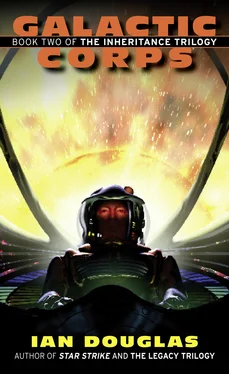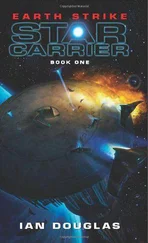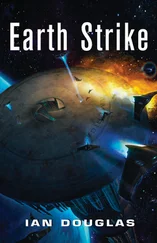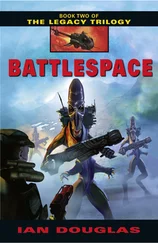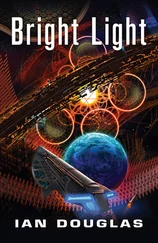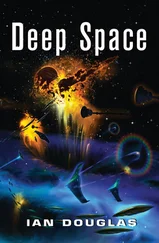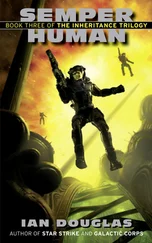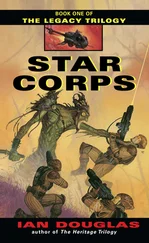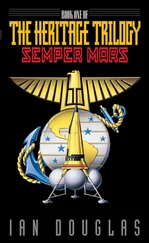What most clearly distinguished We Who Are from most other species was simply the extremes to which that will carried them.
Early in their history, they’d survived — barely — a traumatic encounter with another species upon their home planet. That encounter left them shaken, brutalized, and monomaniacally mistrustful of the motives of anything Other.
It left the other species extinct.
That ancient struggle for dominance, ultimately for survival, imprinted itself upon the psyche of We Who Are. When, in due time, they began moving out into the Galaxy, they carried that imprint with them. No other species posing a threat, however remote, to We Who Are could be permitted to survive.
Over the course of some millions of years, We Who Are extended and expanded the range of their lonely suzerainty over the Galaxy. Eventually, however, they encountered the far-flung bastions of another starfaring species, nocturnal psychovores who styled themselves as the Children of the Night. Like We Who Are, the Children possessed as a racial trait the need to exterminate all competition. Unlike We Who Are at that time, perhaps eight million years ago, the Children were already ancient, their line extending back into a murkily remote past when they, in their season, had wrested dominance of the Galaxy from a still more remote species, a self-aware congeries of organic superconductors that called themselves the One Mind.
Young, fired with righteous ambition and an instinctive determination to crush all competition in order to be alone, and therefore safe, within their Galactic fastnesses, We Who Are eventually triumphed after a savage no-quarters war that scoured a hundred thousand worlds of life. The Children of the Night passed into the ultimate Night of extinction, as had the One Mind before them.
And with that victory, the We Who Are became the new xenophobically senticidal caretakers of the Galaxy.
More millions of years passed. Eventually, like the majority of technically oriented species before them, We Who Are chose to discard their organic bodies, uploading their consciousnesses into nearly immortal cybernetic shells. They carried with them, however, the racial traits of mind and awareness that had distinguished them as organic beings — including the blatantly Darwinian imperative to eliminate all possible competitors, all possible threats to their existence.
In fact, this radical form of natural selection had dominated the galactic scene ever since sentient life had first emerged, some eight billion years before. In any given epoch, it took only a single intelligent species with technic aptitude and a lack of empathy for anything Other to emerge from the cauldron of its birthworld and insure its survival by eliminating all possible rivals. Galactic civilizations rarely overlapped perfectly in terms of their scientific and technical levels; with each encounter, one species tended to be older than the other, usually by many thousands or tens of thousands of years, and hence far more technically advanced.
As new civilizations emerged and achieved technical capabilities permitting space flight and long-distance communication, most wondered why the skies of their worlds, which should have been humming with the signs of advanced civilizations, seemed so silent, so empty. Each time new races, new civilizations took their first tentative steps out beyond the worlds of their genesis, We Who Are, sooner or later, detected their efforts from their scattered bastions, descended upon their worlds, and relentlessly exterminated them. Hence, the silent sky.
But like the Children of the Night, the One Mind, and so many others who’d come before, We Who Are were not omnipotent. The vast, sprawling spiral of the Galaxy, possessing some three hundred billion stars, is far too large, with far too many worlds, for any one race to monitor every possible lifeworld, every emerging sentient species.
And there were so many of these. …
In the outlying regions of the Galaxy’s Perseus Arm, within the dense polar jungles of the warm, inner world of a class-G5 star, a race of brachiating mollusks — morphologically, at least, they somewhat resembled certain members of that terrestrial phylum — swung from the interwoven branches of sessile thermovores not unlike Earthly trees. The species was young, as yet, but had developed an elaborate philosophy based on mating calls, territoriality, music, and mathematics. One day, they might have much to offer an evolving Galactic polylogue, but they hadn’t yet developed electronics or radio, much less the instantaneous magic of quantum-coupled communications. The huntership-communes of We Who Are had passed through this star system several times within the past ten thousand or so years, but not noticed the species’ thriving, arboreal cities.
Not yet.
Closer in toward the galactic core, within the teeming star clouds of the Sagittarius Arm, on the rugged, tide-strained volcanic moon of a superjovian gas giant, a race of armored paraholothurids built water’s-edge hive-cities of compacted excrement and composed palendromic epics celebrating their having been chosen as slaves of the sky-disk they saw as the eye of God. Natural radio emitters, they broadcast the glory of the one true religion to the stars. We Who Are had detected those signals and searched for their origin; so far, they’d not found the holothurids’ world, for they tended not to think of planetary bodies outside of the star’s liquid-water habitable zone as a possible abode of life.
That particular blind spot had given them trouble more than once in the past, and likely would again.
Closer in still toward the galactic hub, near the merging of the Norma and Scutum-Crux Arms, a fiercely radiating type A star blasted its unusual coterie of rocky worlds with intense radiation. Bathed in abundant radiant energy, Life had emerged on the innermost world and, borne by the local stellar winds, had seeded the other, outer planets of the system as well. Sentience had arisen here a few million years before, rising among several of the numerous, fast-evolving taxas of selenium-germanium chelated crystalline chemovores that constituted the local biosphere. Here, again, the manipulation of naturally occurring radio waves became the basis for communication, and, again, those manipulations had been detected in the depths of space, light-years distant.
The pace of crystalline life, however, tends to be slow, too slow for We Who Are to distinguish that life from the inorganic chemistry of accreted minerals. Those received artificial signals had caused the local We Who Are node some considerable concern, but it was clear that the problem soon would take care of itself. Type A giants are short-lived stars, their lifetimes on the main sequence lasting less than half a billion years. The local star already was showing signs of instability, and soon the abundant radiation that made life and sentience possible here would become that life’s executioner.
Twenty-three thousand light years from the Galaxy’s center, within the smear of stars and nebulae known as the Orion Arm, a world called Chiron by its most recent inhabitant, represented two distinct threads of civilization within the Galactic scene. Bathed in the yellow and orange hues of a double star, the world’s continents were battered and cratered by an intense celestial bombardment of half a million years before, and everywhere stood the somber and silent ruins of a golden civilization swept away by the firestorm. They were known by those who’d come later variously as the Ancients and, so numerous were the crumbling shells of their hell-blasted world-cities, as the Builders.
Читать дальше
